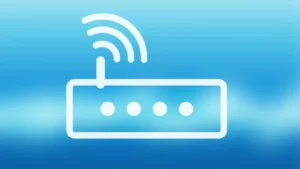The internet is a haven for the people or a hellscape. Many people would fall into either side of these. Due to the internet being a global phenomenon and readily available to anyone, there is a high chance that the wrong people might be using it. However, with the “free world” screams of the people, everyone has the right to access. However, government officials have rules and regulations that must be followed by all for safer surfing.
There are many internet providers but not all are responsible for misinformation or wrongful use of the internet service they provide. To understand what misinformation passed on the internet is and how it can be used wrongfully or if blaming the internet providers for the issue is right. For example, HughesNet would not be responsible for someone who got their service for their home and family use, but this person uses that service to run an online group of drug dealers with a device that can easily be hidden. Now let us say this person is 19 years and is doing this illegal work but the police cannot track anything without a surety or a warrant for arrest unless they have proof of it happening.
In any case, Hughesnet is not to be blamed. This is one example to explain how misinformation spreads on the internet. Many other examples explain all the wrongs on the internet happening in the 21st century and the way it is not turning around anytime soon.
As we all tend to question at times:
What is wrong & what is Right?
What is true & what is not?
A treacherous amount of information is accessible on the internet that in many ways, but what is wrong and right would be distinguishable by the societal norms and set of beliefs. Societal norms and beliefs are built over time and instilled in children through learning and experiences. Thus, deep down the wrong and right can be distinguished before actions.
However, what is true and what is not, is another matter of discussion. It can only be verified if a person has the means or is aware that the information presented can be false information. Still, it is not always identifiable.
The people cannot be blamed to fall for misinformation and turn up on the wrong end. People have even died using wrong information that came from a known source even such as eating Mentos and coke does not result in death but people have died because everyone’s body reacts differently. The internet is full of tricksters, liars, manipulators, and harmful intentions that lead people with pure and good intentions into the worst onset. People should hence slow down, look around, and get the right information before acting on it. Checking and rechecking while having a backup plan such as when purchasing something, a property, a gadget, etc. online or in-person after going online for it.
People should also not believe everything online and get their facts and figures straight and from authorized sources such as using data for a dissertation made up for something else with zero truth. The internet is opinionated and you should not follow suit but clear up what doubts arise and always trust the gut feeling. No matter what, the gut may not always be right but it does tell you when something is wrong. So listen to it and trust it!
How to Surf & Survive Safely
Step 1: Awareness
You need to know first, the right from wrong. Then identify the red flags in any information before using or performing an action with that information such as bill payment, buying something online, and giving out your personal information readily. Don’t send over any information on a page you have doubts about or you feel is not a reliable place. Trust the instincts.
Know little red? Don’t fall for it
- High emotional appeal for example death of your loved one
- Ridiculous stories that may feel true
- Spending money due to reasons above^
Step 2: Link Checks
You should know which pages are right to be clicked on. Don’t open websites you feel or show a warning sign, they may have malware that hacks your device or take the information you’ve used and saved over time. Don’t follow the websites without a lock sign in the URL bar on the left-hand corner. Never open sites that pirate content and display illegal ads, which lead to auto-clicking, and using your information or camera by hacking.
Step 3: The Context
The questions you need to ask:
- Is it believable?
Is the story a pull-off, real, made up entirely is what you need “get to know”.
- Who is providing the information?
Use government sources to identity and legal papers checked if you are investing, sending money to an unknown source.
- What is the scale of the story?
For example, someone saying they own a company but do not have a personal account to wire money in.
Step 4: Evidence
You should collect all evidence before complaining to a regulatory authority such as cybercrime or get their help to identify if the information is wrong.
The goal is to get it right, so no other person becomes a victim. To find how it works and which is true or subjective. Overall this would affect your final decision but don’t worry at least you’re saved.
Conclusion
It is vital to know what is wrong and right, take action according to moral conduct and values, and make the internet a haven even if someone tries to make it a hellscape.







